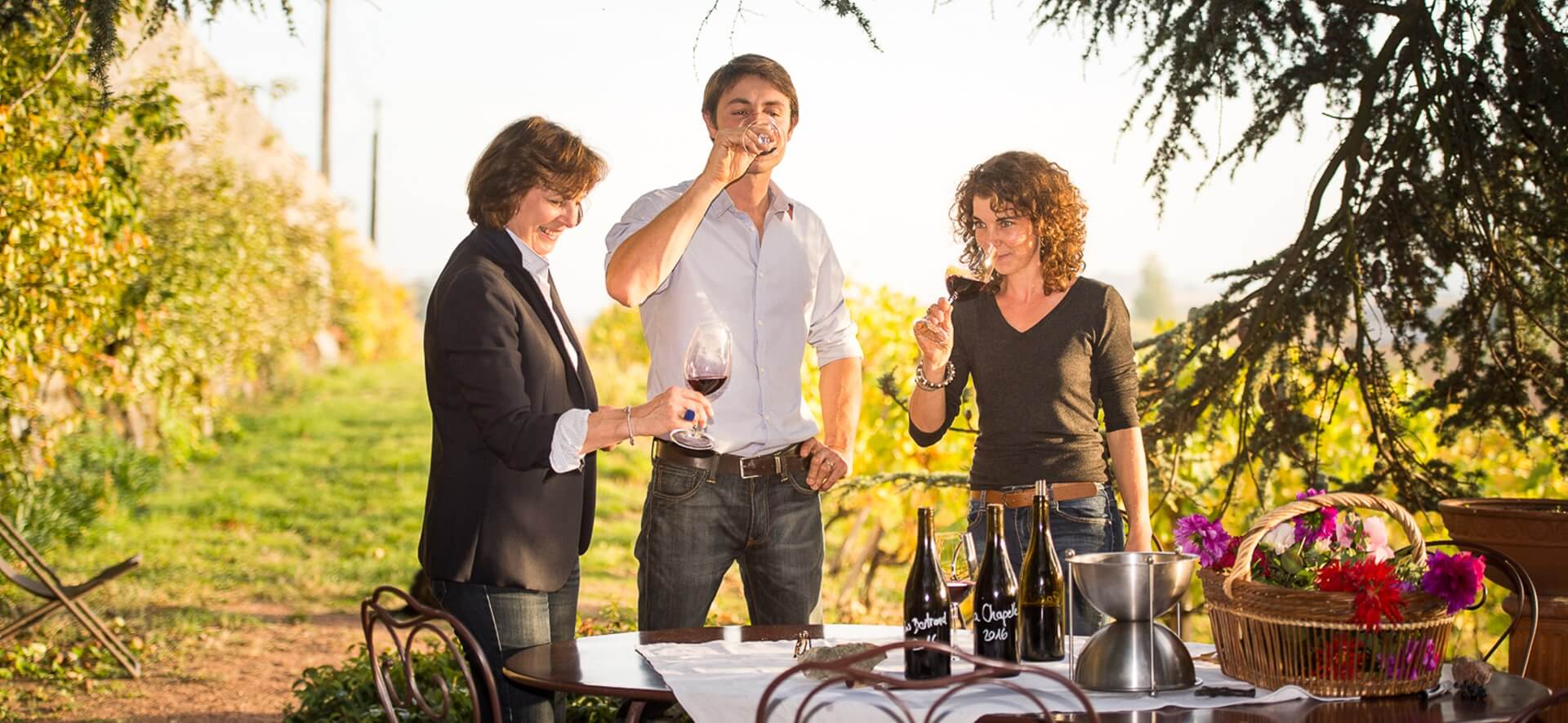



“There is more philosophy in a bottle of wine than in all the books.” Louis Pasteur
As little interference as possible to allow the terroir and the vintage to be expressed as best as possible.
In vinification, we are there to support a natural process and ensure it takes place correctly, but we reject any intervention liable to modify the character of the terroir — our quest is rather to bring it out.
The harvest is the result of entirely manual picking, in order to obtain the best grape quality. They are transported in small trays to the vat room, where they will be vinified either traditionally in bunches, or partly stripped.
The vat room, modernized in 1977 and then again in 1998 and 2009, is built on the hillside, giving a succession of levels that allow us to make as much use as possible of gravity, so as to avoid using either pumps or conveyors for the grapes. This principle allows all the grapes to be optimally handled right up to the press.
Having taken all these precautions to preserve the quality of the grapes we harvest, not much more needs to be done for the alchemy of the fermentations and maceration to transform the grape juice into wine. In point of fact, a technical approach is the enemy of terroir wines: for the terroir to be best expressed, we intervene only in order to check the temperature, and use punch-down and pump-over to encourage the extraction of the tannins and the colour.


And lastly, low-pressure pneumatic pressing allows us to obtain the best musts, which will finish their fermentation in tuns (oak casks of 20–40 hl, sometimes a hundred years old). The wine will remain in these tuns for 6–8 months, and during this maturing the wine is clarified and becomes more complex.

For our Zaccharie wine, the maturation is longer: 10–12 months, and is done in 228-litre casks that will have been used for up to 7 wines. Wood is an inescapable material for maturing keeping wines; thanks to its porous properties, it allows micro-penetration of the oxygen in the air that is necessary for the wine to mature. Wine can be compared to a living being through its composition and this need for oxygen in its production, but like any living being, it’s also oxygen that makes it age, and in the end, will destroy it.
In our cellars, each plot is vinified separately, as each has its own qualities. This enables us to make some wines from a single plot, like “La Chapelle” and “Le Clos Bertrand”, or to blend our seven plots to obtain a wine representative of the Côte de Brouilly appellation (“Les 7 vignes”).